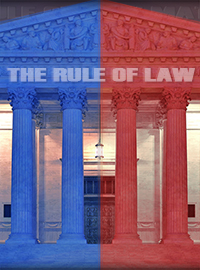| Why Conservative Lawsuits Aren’t Examples of Judicial Activism |
 |
|
By Ashton Ellis
Tuesday, January 06 2015 |
It’s January 2015, and liberal politicians in Washington are already making good on one of their resolutions – frame Republicans as hypocritical on judicial activism. Congressman Gerald E. Connolly, a Virginia Democrat, got the ball rolling when he said that Republican lawsuits challenging the legality of President Barack Obama’s unilateral executive actions are hypocritical turns to judicial activism. “What they cannot win in the legislative body, they now seek and hope to achieve through judicial activism,” Connolly told the New York Times. “That is such delicious irony, it makes one’s head spin.” Senator Chuck Schumer, a New York Democrat, joined in. “They decry the courts’ overruling or implementing things they don’t like, but are eager to have the courts implement things they do like.” As the Times reports it, the Republican lawsuits – e.g. those challenging the legality of Obama’s executive amnesty, the EPA’s war on coal and the IRS’s decision to extend ObamaCare subsidies to all Americans despite statutory language to the contrary – are nothing more than policy disputes dressed up as violations of fundamental principles. As such, Republicans are now calling for the same kind of politicized judiciary they supposedly detest. The Times includes as examples of conservative “political victories” Supreme Court decisions that upheld the Second Amendment right of individuals to keep and bear arms (Heller), as well as the First Amendment right to spend money in support of political speech one agrees with (Citizens United). Even Bush v. Gore – the Supreme Court decision that halted the Florida recount of presidential ballots in 2000 – was based on a theory of voting and equal representation championed by liberals. In all of those cases, conservatives were merely asking the federal courts either to apply relevant precedent or interpret the plain language of the United States Constitution in a way consistent with its original meaning. Structurally speaking, the Constitution is impossible to understand without the twin pillars of federalism and separation-of-powers. Federalism preserves the independence of the States by ceding only a limited amount of powers to the national government, while the separation-of-powers establishes three co-equal branches. As the familiar formula goes, Congress makes the law, the President implements the law and the Courts interpret the law. In every single one of the current lawsuits profiled in the Times piece, the fundamental issue is federalism, separation-of-powers, or both. The Texas-led, 24-state challenge to Obama’s unilateral immigration amnesty argues that the president lacks legal authority to suspend deportations for up to 5 million illegal immigrants. It also tallies the lop-sided financial burden on states where illegal immigration is concentrated as an unfunded mandate on local citizens. Laurence H. Tribe, Harvard’s most famous liberal law professor, has launched a similar line of attack on the EPA’s recently announced War on Coal. After reviewing the agency’s rationale for dictating the States’ energy policy and finding it without merit, Tribe says the new regulatory scheme would violate numerous Supreme Court decisions that prohibit “federal commandeering of state governments” because it “defeats political accountability and violates principles of federalism that are basic to our constitutional order.” To his credit, the Times writer did interview attorneys general Patrick Morrisey of West Virginia and Scott Pruitt of Oklahoma. Both are Republicans suing the Obama administration in federal court. Morrisey is challenging the EPA’s coal regulations. Pruitt disputes the IRS’s decision to make subsidies available to residents of states without a local ObamaCare exchange. When asked by the Times whether policy considerations are driving his lawsuit, Pruitt responded, “At its core, I would not characterize this as a political or a policy response. From my vantage point, it is truly about these issues of federalism and rule of law that really matter to the states.” Pruitt is right. The rule of law matters. The Constitution isn’t merely a collection of aspirations to be discarded whenever political expediency dictates. Rather, it’s a statement of principles that guide our deliberations and shape what’s permissible. What makes the current crop of conservative Republican lawsuits different from almost all liberal Democratic ones is that the latter seek to have federal judges create constitutional rights rather than uphold those that already exist. Connolly and Schumer don’t mind being tarred-and-feathered as promoters of judicial activism so long as they can claim that Republicans do the same when it suits them. On closer inspection, however, that charge just doesn’t stick. |
Related Articles : |
























